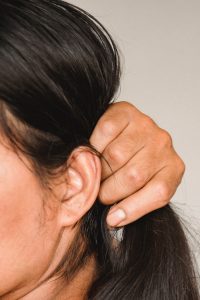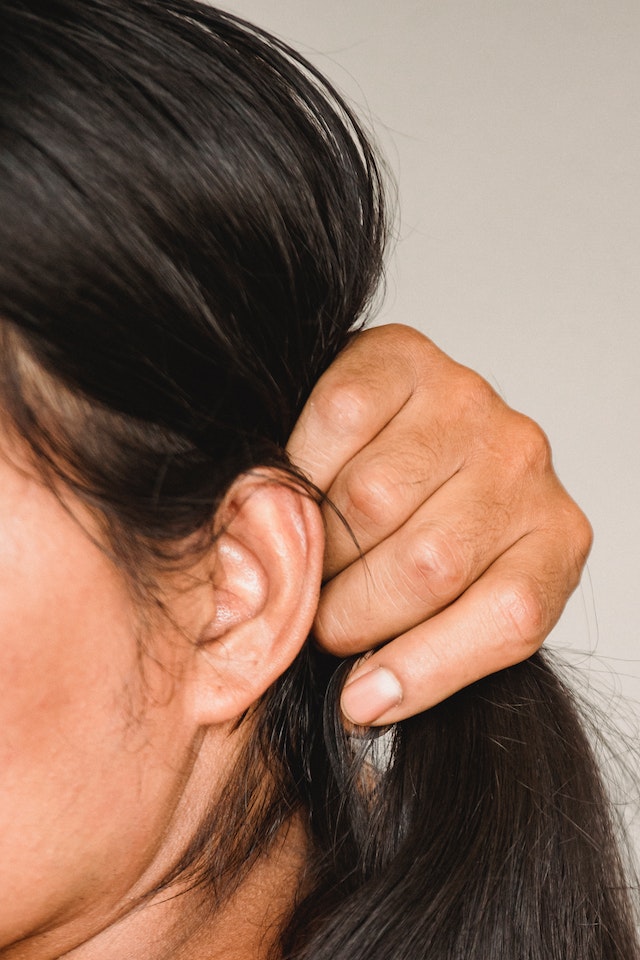Understanding the reasons behind oily hair
Dealing with oily hair can be a bothersome issue that affects your self-assurance. To effectively tackle the problem, it is crucial to comprehend the root causes. An excessive production of sebum by the oil glands on the scalp is one main reason. Hormonal imbalances, genetics, and environmental conditions can all play a role in influencing this. Furthermore, excessive washing or the use of harsh hair products can remove essential oils from the hair. Stimulating the scalp to generate additional oil as a form of compensation.

An Expert’s Insight into an Effective Hair Care Regimen
Developing a regular hair care regimen is crucial in controlling oily hair. Begin by selecting the suitable shampoo and conditioner for your specific hair texture. Choose products that are specifically labeled as “clarifying” or “volumizing.” When washing your hair, pay attention to the scalp and roots to get rid of any extra oil and buildup. To prevent adding excess oil to your scalp, focus on conditioning just the ends of your hair to keep them moisturized.
Unhealthy lifestyle habits can contribute to greasy hair. Here are some things to avoid:
1. Overwashing: Washing your hair too frequently can strip away its natural oils, causing your scalp to produce more oil to compensate. Try washing your hair every other day or every few days instead.
2. Using harsh products: Avoid using strong shampoos and conditioners that can dry out your scalp and trigger excess oil production. Look for gentle, sulfate-free products specifically designed for oily hair.
3. Touching your hair frequently: Constantly touching and playing with your hair throughout the day can transfer oils from your hands onto your strands, making them greasier.
4. Overusing styling products: Heavy styling products like gels, pomades, and waxes can weigh down your hair and make it look greasier. Opt for lighter alternatives or use them sparingly.
5. Brushing too much: Brushing excessively stimulates the oil glands on the scalp, leading to increased oil production. Limit brushing to a few times a day using a wide-toothed comb or brush specifically designed for oily hair.
6. Heat styling excessively: Frequent use of hot tools such as flat irons and curling irons can cause dryness in the scalp, prompting it to produce more oil as a protective measure.
7. Poor diet: Consuming excessive amounts of fried foods and unhealthy fats can exacerbate oily scalp issues. Opt for a balanced diet rich in fruits, vegetables, lean proteins, and healthy fats like avocados and nuts.
By avoiding these habits and adopting healthier practices like balancing washing frequency with gentle cleansing products, you can help manage greasy hair more effectively.
Certain behaviors and choices can lead to oily hair. To prevent your scalp from producing excess oil, it’s important not to wash your hair too frequently and remove its natural oils. Avoid constantly touching your hair. The natural oils on your hands can make your hair problem worse when transferred to it. It’s important to use styling products sparingly to prevent your hair from looking weighed down and oily. Choose lightweight styling products and use them sparingly.
Tricks to Manage Oily Hair: Fast Solutions and Permanent Remedies
When it comes to managing oily hair, there are various immediate remedies and lasting strategies available. Dry shampoos are a convenient solution for absorbing excess oil and instantly refreshing your hair. For optimal outcomes, apply a minimal quantity and concentrate on the roots area. Try out various hairstyles like braids, updos, or hairstyles with texture to help hide oily hair. To maintain a healthy scalp and control oil production, it is recommended to include scalp treatments such as clarifying masks or apple cider vinegar rinses in your regular hair care routine.
Conclusion:
To summarize, with the correct strategy and guidance from professionals, it is feasible to effectively manage greasy hair. By gaining an understanding of what causes greasiness, establishing a suitable routine for hair care, avoiding specific lifestyle habits, and employing useful styling techniques. Say goodbye to oily hair troubles. Achieve fuller and more confident hair by following these proven techniques recommended by an expert stylist. Say farewell to oily hair and welcome gorgeous, easy-to-handle locks.




